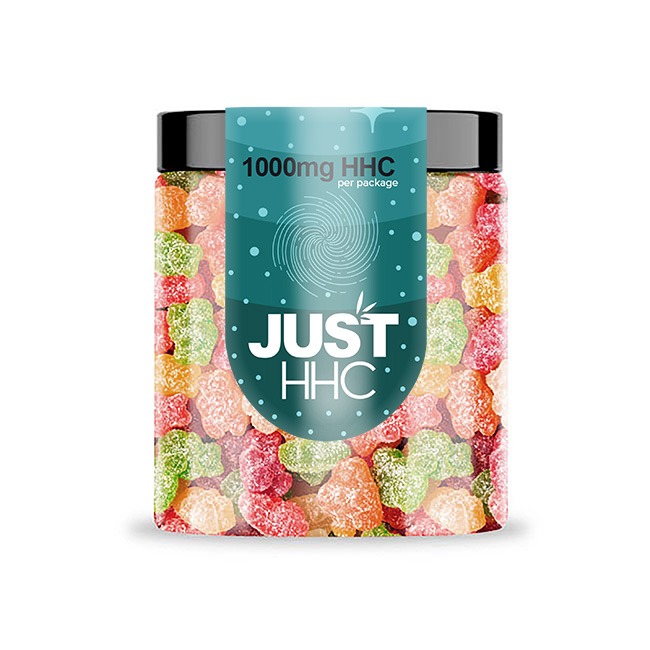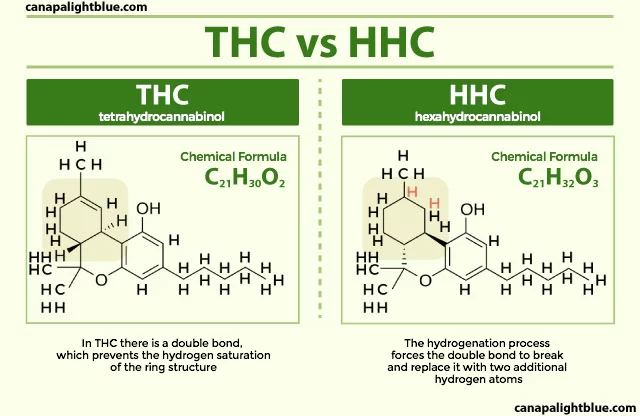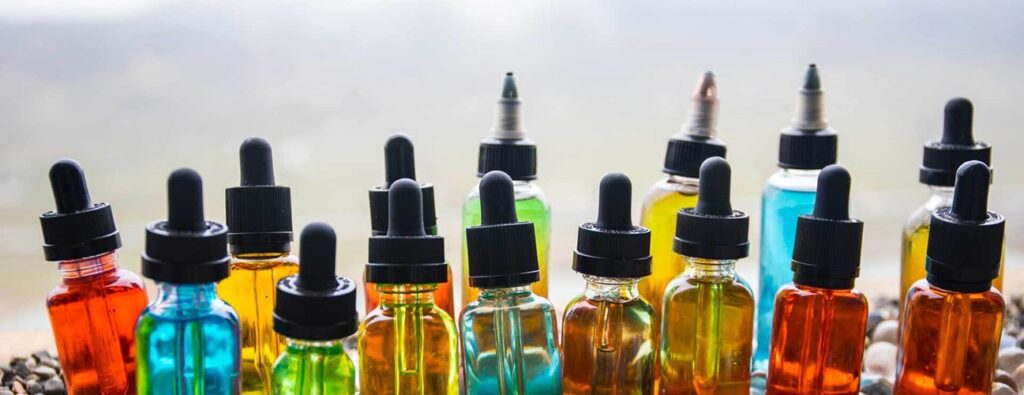Cannabis consumers ask whether HHC is noticed in drug tests. Some anecdotal claims show that HHC is noticed in drug tests, while others decline this statement. Follow this article for more enlightenment.
Some individuals should undergo essential job interviews or drug tests in their workplaces. Such people might have concerns about whether No Cap Hemp Co HHC Gummies effects might be noticed in drug test results. Hexahydrocannabinol (HHC) is the latest cannabis product hitting the mainstream market significantly. However, most cannabis users have not understood HHC appropriately. As a result, some are afraid to utilize the product due to legal and health uncertainties. Unfortunately, certain workplaces stipulate their independent drug-free rules. In addition, other employers decline THC\’s legal status regardless of whether the state has legalized it for medicinal and recreational uses. Therefore, consider this article to know vital things concerning HHC products.
What is HHC?
Jiang (2019) mentioned that Hexahydrocannabinol (HHC) is a stable THC CBD Gummy Bears compound, resilient to Ultra-Violet radiation and heat. Furthermore, it comprises a substantially longer storage life than tetrahydrocannabinol (THC). This is because this molecule undergoes saturation with hydrogen atoms to boost its storage life without interfering with the profile. Generally, cannabinoids bind to the human body\’s cannabinoid receptors. This stimulates a chemical reaction, activating a regulatory routine that stabilizes the bodily function systems. Nevertheless, the body does not entirely absorb these compounds, inferring that the customer cannot attain optimum effects, including high amounts. However, HHC can increase cannabinoid bioavailability. In general, cannabinoids CBD Oil penetrate the human bloodstream better, thus producing stronger effects. According to Duggan (2021), HHC delivers greater bioavailability because the substance development process increases its opposition to light and heat, which destroys cannabinoids. Nevertheless, the HHC availability is partial, but its authentic products trending in the marketplace undertake the vape cartridges formulation.
Does HHC Show up on Drug Tests?
Currently, no experimental evidence proposes whether HHC shows up on drug tests. Nonetheless, anecdotal evidence and consumer accounts propose that HHC may escape detection on universal marijuana drug examinations. Obonga (2015) confirmed the claims as well. However, HHC consumers should be cautious in selecting products because some full-spectrum and mixed products might contain minuscule THC amounts. Thus, confirm the product\’s independent laboratory report for the Certificate of Analysis (COA). Notably, drug tests search for THC presence in products, but HHC-particular examination is not continual. Standard urine examinations do not monitor for tetrahydrocannabinol (THC) in cannabis. However, they identify metabolites developed by the human body when THC is ingested. Experts report that HHC cannot transform into 11-hydroxy-tetrahydrocannabinol after ingestion, such as delta-9 and delta-8, the common drug examination metabolite. The HHC compound could escape universal drug tests if this statement is valid. Nevertheless, this theory is insufficiently backed by evidence. The outcomes will show failed drug tests if HHC metabolizes into 11-hydroxy-tetrahydrocannabinol or the same metabolite. People with vital drug tests are recommended to avoid HHC until several studies support claims made by persons.
How long does HHC Remain in the Human System?
Several factors determine the duration that HHC stays in the human body. These include the quantity of HHC ingested, HHC variety, and the test type employed in detecting the HHC traces. Also, the proposed duration that HHC remains in the human body is approximately three months and 42 days. An essential factor to consider is any small quantities of different compounds like delta-9 or delta-8 found in the HHC product. Purchase HHC merchandise from reputable trademarks with laboratory reports. In addition, they must provide a Certificate of Analysis (COAs) which confirms the product\’s quality and purity. Other factors are personal drug sensitivity, the interval of HHC consumption, and body fat levels. Below are guidelines on the duration that HHC might remain in the human system by examination type:
- Blood test-the experts infer 90 days, although much information is still ambiguous.
- Urine test-Occasional use (one to five days), Light or regular users (one to three days), and heavy users (four to six weeks).
Drug results and testing have not engaged accurate science, and people are different. It would help if you planned to uphold accountability and ensure the drug test passes successfully.
Is HHC Safe?
Hemp-sourced cannabis is not controlled similarly to cannabinoids present in cannabis. Also, they undergo shallow research. Thus, no research is provided on the long and short-term effects of utilizing HHC. Additionally, HHC manufacturers are not required to examine products for purity, potency, and quality control. In this regard, these factors can threaten the safety of HHC products. Dinesh et al. (2009) commented that hexahydrocannabinol is friendly for consumption. However, the major concern is the safety of HHC products purchased. Therefore, cannabis consumers should buy HHC merchandise from brands that derive their hemp legally. Furthermore, they should have undergone independent third-party laboratory parties to guarantee purity and accurate potency.
Is HHC Legal?
Similar to many hemp-sourced cannabinoids, HHC falls within the lawful gray area. Because HHC is hemp-sourced and does not have any tetrahydrocannabinol, the compound is legal federally and might also remain authorized at state levels. Furthermore, because HHC occurs naturally in hemp plants’ pollen and seeds, most manufacturers regard it as non-synthetic and hemp-extracted, thus increasing its legal position. However, some individuals disagree with HHC legality. It might be exposed to Federal Analogue Act. This act states that any compound with analogous effects to delta-9 THC (schedule 1 drug) is classified in this category. Because tetrahydrocannabinol is prohibited at the federal level, hexahydrocannabinol would become banned through this logic. Kuguyo et al. (2021) mentioned that HHC is authorized in the unclear region between illegal cannabis and legal hemp from these aspects. Later states will determine whether HHC is illegal or legal, and many countries might prohibit it in a similar manner they illegalize delta-8 THC.
Conclusion
Hexahydrocannabinol (HHC) is a stable THC compound, resilient to Ultra-Violet radiation and heat. Some anecdotal evidence reveals that HHC might escape a marijuana drug test. However, consumers should be careful when purchasing HHC products because some might contain traces of THC. Researchers show that HHC is not metabolized into 11-hexahydroxy-THC, making an individual fail the drug test. The duration that HHC remains in the body is important. Manufacturers propose that it stays for three months and 42 days. Other factors that influence this time include HHC consumed amount and variety. Consumers should avoid taking HHC products while undergoing drug tests. Furthermore, purchase these products from reputable brands.
References
Dinesh, T. H. A. P. A., Dinesh, B. A. B. U., Su-Young, P. A. R. K., Min-A, P. A. R. K., Likai, X. I. A., Rok, L. Y., & Jung, K. I. M. (2009). Involvement Of NAG-1 In P53-Mediated Cancer Cell Apoptosis By A Novel Synthetic Cannabinoid Derivative, Hexahydrocannabinol. 춘계총회 및 학술대회, 129-129.
Duggan, P. J. (2021). The Chemistry Of Cannabis And Cannabinoids. Australian Journal Of Chemistry, 74(6), 369-387.
Jiang, S. (2019). Controlled Activation And Deactivation Of Cannabinergic Ligands And Novel Mono-And Bi-Functional Classical Cannabinoid Probes (Doctoral Dissertation, Northeastern University).
Kuguyo, O., Misi, F. D., Chibonda, S., Matimba, A., Nhachi, C., & Tsikai, N. (2021). Pain Management Strategies Among Cervical Cancer Patients In Zimbabwe. Pain Management, 11(6), 715-729.
Obonga, W. O. (2015). Evaluation Of Phyto-Chemical And Medicinal Properties Of Cannabis Sativa Linn.(Family: Moraceae) (Doctoral Dissertation).
- 7 Best CBD Oil Products for Sleep - November 25, 2022
- 3 Ways CBD Oil Helps Reduce Acne Caused by Hormones - November 25, 2022
- Will Vaping Delta-10 Make Me High? - November 25, 2022




